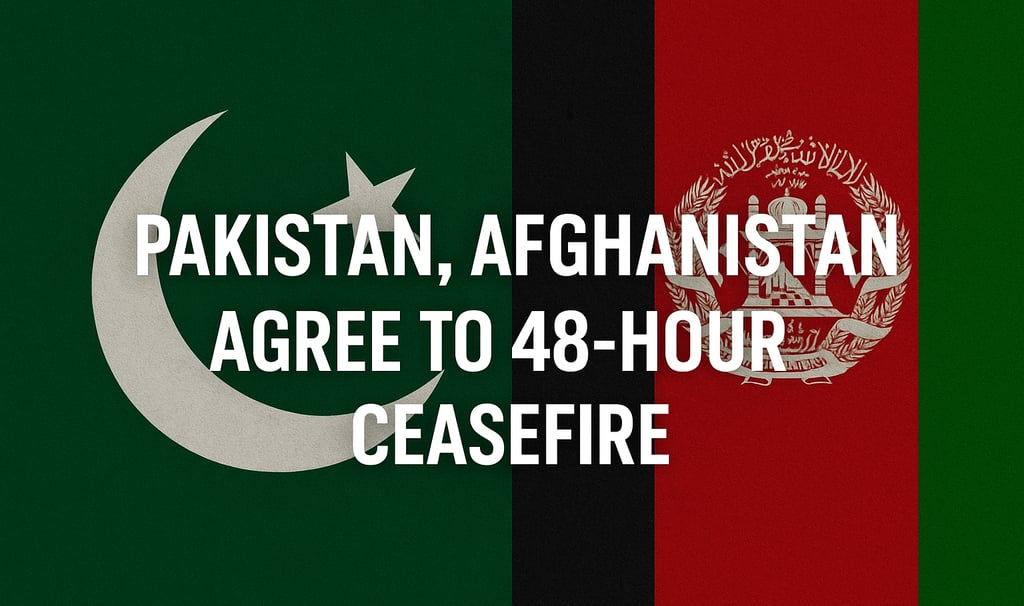Pakistan, Afghanistan Agree to 48-Hour Ceasefire — Islamabad Confirms
Pakistan and Afghanistan agree on a 48-hour ceasefire to ease border tensions and restart diplomatic talks after deadly clashes.
Raja Awais Ali
10/15/20251 min read


Pakistan and Afghanistan Agree to 48-Hour Temporary Ceasefire, Islamabad Confirms
Pakistan and Afghanistan have agreed to a 48-hour temporary ceasefire following several days of escalating cross-border violence. The ceasefire, announced by Pakistan’s Foreign Ministry, aims to prevent further loss of life and create an environment for renewed dialogue.
According to the official statement, the ceasefire will take effect from 6:00 PM on Wednesday, covering key border areas where recent clashes caused both military and civilian casualties. The Foreign Office emphasized that both sides have agreed to use this brief period to restore communication channels and explore pathways toward a long-term peace framework.
In recent days, intense shelling and airstrikes were reported along the Pakistan-Afghanistan border. Afghan officials accused Pakistan of conducting aerial attacks, while Islamabad blamed Afghan forces for initiating unprovoked firing. The exact number of casualties remains unclear, but reports suggest significant damage on both sides.
The Foreign Office described the decision as a “complex but necessary step” to stop further deterioration and reestablish trust between the two nations.
Diplomatic sources revealed that high-level talks are expected to take place during the ceasefire period, focusing on border management, counter-terrorism cooperation, and reducing militant activity in the frontier regions.
Analysts believe this temporary ceasefire could be a turning point if both governments commit to maintaining peace. However, the presence of militant groups and non-state actors in the border areas remains a major obstacle to lasting stability.
Global powers have also welcomed the truce, urging both nations to seize the moment and work toward a durable peace agreement. Failure to do so, experts warn, could result in renewed hostilities once the 48-hour period ends.
For now, the ceasefire represents a fragile but hopeful pause in the long-standing hostilities between the two neighbors. If successful, it may pave the way for a broader peace process that could reshape security dynamics across the region.
Stay informed with the latest national and international news.
© 2025. All rights reserved.